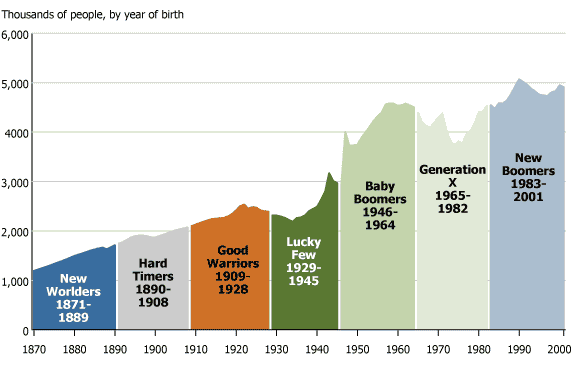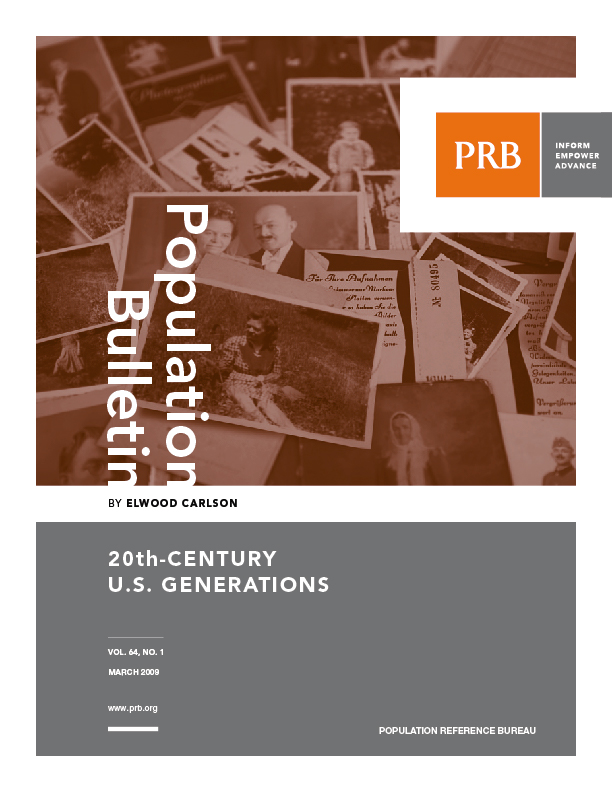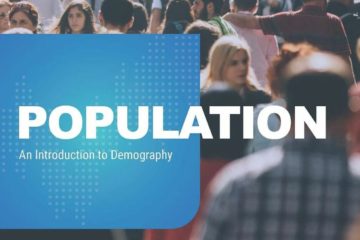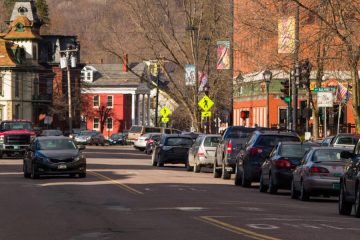
20th-Century U.S. Generations
Population Bulletin, Vol. 64, No.1
Date
March 4, 2009
Arthor
PRB
Focus Area
(March 2009)The myriad decisions we make throughout our lives—choices about education, joining the military, marriage, having children, changing jobs, moving, caring for aging parents, saving for retirement, and dealing with challenges in old age—affect not only our individual lives, but public policy and business practices as well.
Governments formulate laws and policies about child and health care and Social Security based on the life choices they expect us to make. Private businesses make plans based on the life choices they expect from us as employees and customers. The 2008 U.S. presidential election clearly demonstrated that individual choices and expectations vary considerably across U.S. generations. Generational differences in demographic experiences provide some clues about the sources of the generational divide seen in some political, social, and consumption choices.
U.S. Generations at Age 30 (with projections for births after 1978)
 Source: U.S. Census Bureau.
Source: U.S. Census Bureau.
By virtue of when they were born, members of each generation live through unique times shaped by unexpected historical events, changing political climates, and evolving socioeconomic conditions. Generations also come in different sizes and changing mixtures of ethnicity, helping to shape the choices individuals will make in life. A generational perspective offers fresh insights into contemporary society by emphasizing both the distinctiveness of each generation in its particular historical context and the persistence of such distinctions across an individual’s life. When different generations respond in unique ways to common problems and choices, businesses, governments, and we as individuals need to recognize and understand such distinctions. This Population Bulletin highlights contrasting American generations of the 20th century, showing how each one influenced and reacted to the social and economic landscape over which we all must travel during our lives.
Elwood Carlson is the Charles B. Nam Professor in Sociology of Population at Florida State University. His research concentrates on generational cycles in populations, social determinants of infant and reproductive health, and working-age mortality, using evidence from Europe and the Middle East as well as American society.

 ">
">





